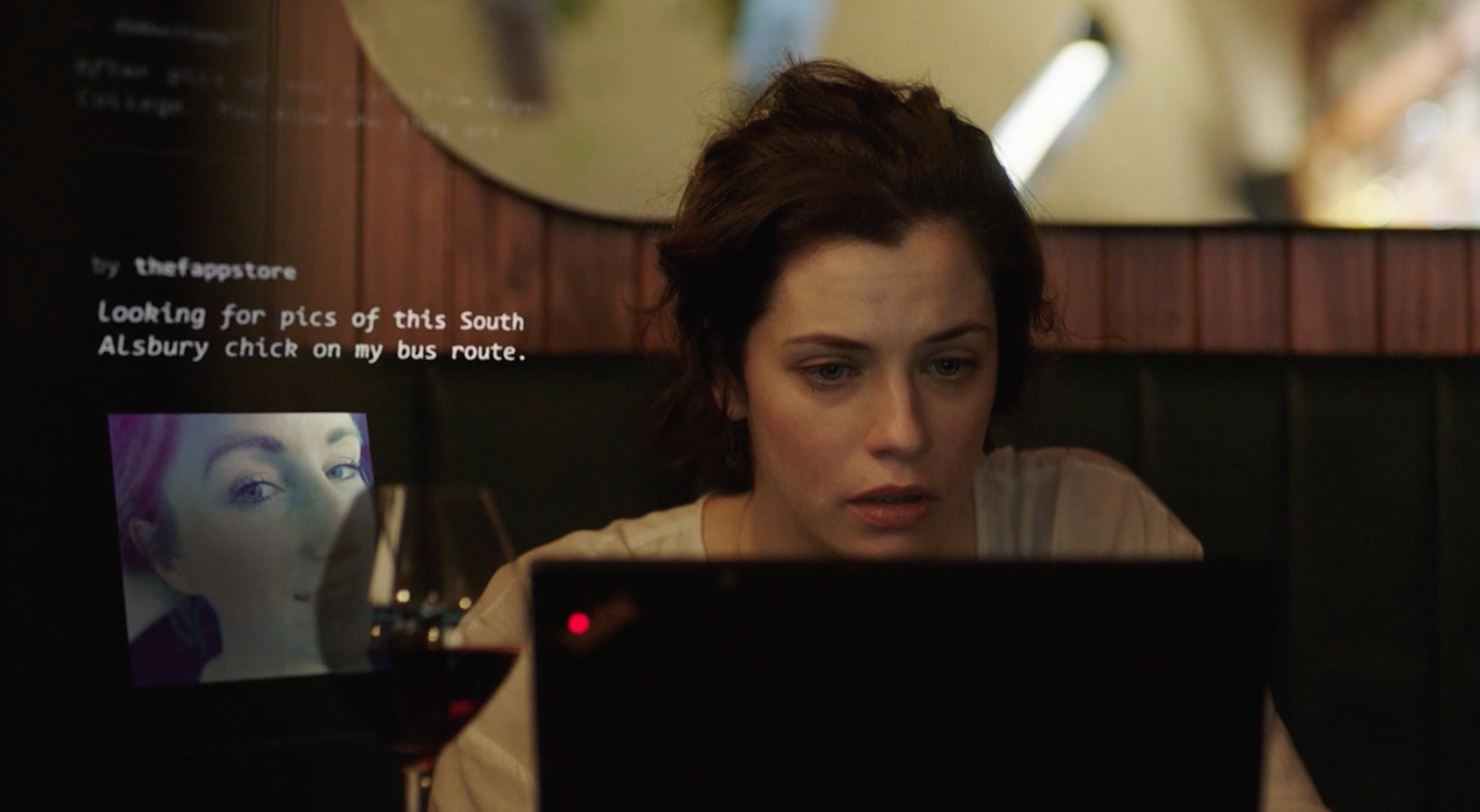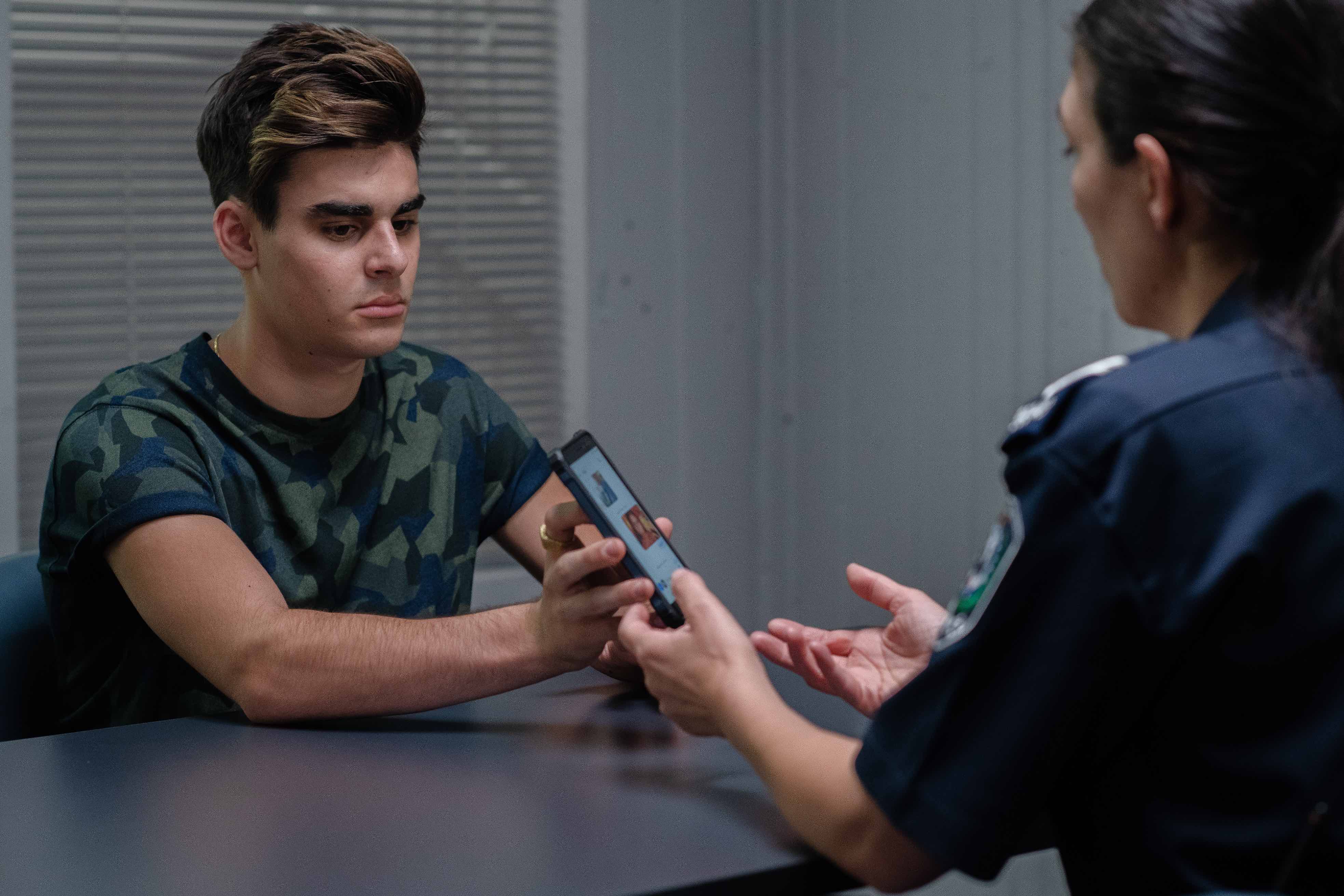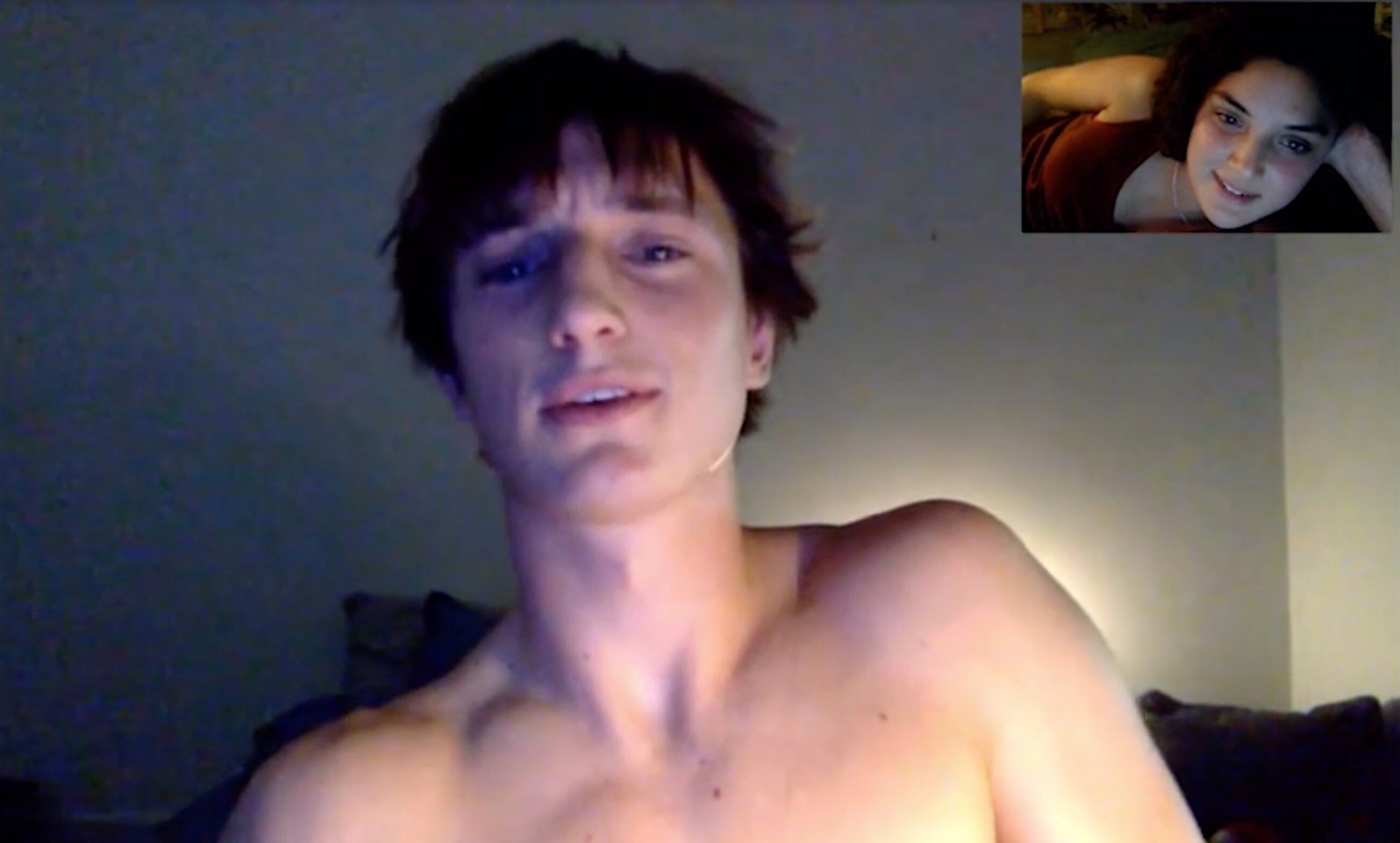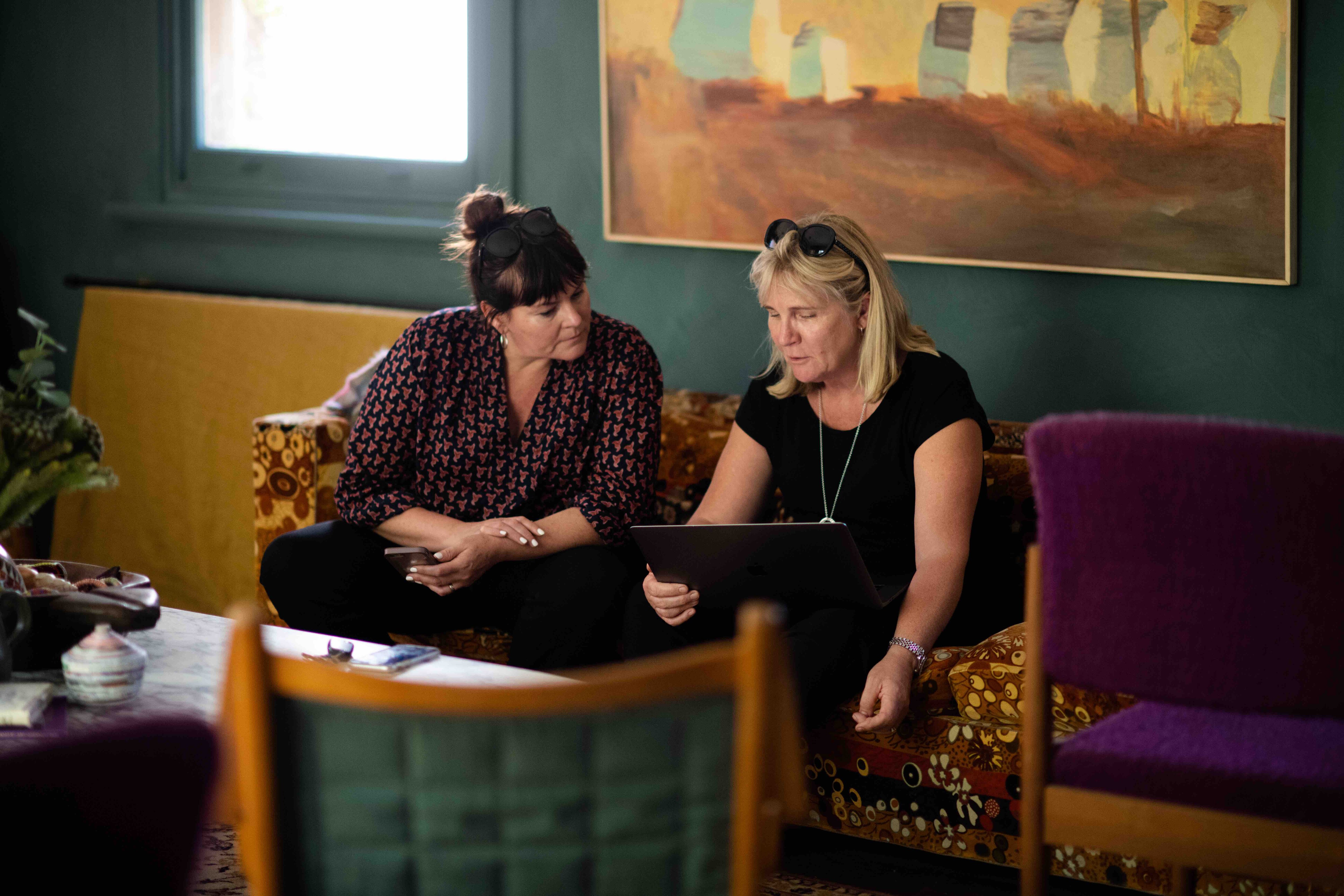Spoiler alert: We discuss some major scenes that set up the four-part series.
Rebecca Summerton (Animals, 52 Sundays) says the team behind the four-part drama The Hunting never wanted to preach about teen sexting and sexuality, but rather start a conversation on an issue that isn’t being properly dealt with.
She speaks with SBS Guide about the extensive research and preparation, real-life cases, and complex legal ramifications of image-based abuse that underpin the story of a scandal that envelops two Adelaide high schools when it’s discovered teen boys are trading explicit images of female students online. And how the drama could open a vital dialogue between young people and their parents.
How much did you talk to experts on the issue of sexting? Did some of that inform the script?
We did a lot of research and had a consultant in the writing room early on, [journalist and anti-sexual assault advocate] Nina Funnell, and she fed in the work she’s doing. She reports a lot on sexual abuse, she’s a sexual assault survivor herself, and was involved in the reporting of image-based abuse before we started The Hunting.
We drew upon many, many instances across the world of websites where image-based abuse is happening . She talked a lot about her experiences talking with victims of various types of sexual abuse and in the spectrum of what that means, image-based abuse as well as all kind of transgressions of consent and trust. Was it a hard line to walk between educating, and preaching about sexting and its legal consequences?
Was it a hard line to walk between educating, and preaching about sexting and its legal consequences?

Assistant principal Eliza Dunsford (Jessica De Gouw) is horrified at what she finds on the illicit website. Source: SBS
I don’t think so. It seems that it’s touched many people’s lives and it’s a very hot topic that we haven’t really sat down and nutted out as a society about how to properly deal with [it]. What was important to us in telling the story was that we explored as many of the complexities [involved] – from the point of view of teachers and schools, parents, and students. How the issues that we’re talking about, which include gender and relationships between genders, misogyny, and sexuality, are playing out in those three spheres.
The only thing that we sort of grappled with was the legalities around [sexting]. We really wanted to be sure that it was accurate and had veracity, that we weren’t misrepresenting what’s actually possible to happen to young people who are involved in situations like this.
I’ve seen very strong statistics about the number of children in Queensland, for example, that end up in court for possession and distribution of child pornography. We felt that it was really important to show the strangeness of that, that a young person who sends an image of themselves can be in legal trouble for that. We really wanted to push that to what the worst-case scenario [is] because it’s a really important part of the conversation.
We’re very sex-positive and we believe that sexting in itself is not necessarily a negative thing. In some ways, [young people are] not at risk physically and there’s certain protections, but there are risks if someone betrays their trust. What we’re hoping to do is raise a conversation around that, and for people to be educated. We’ve been speaking with Adair Donaldson, who’s a lawyer who educates young men, for example, in the NRL. His mission is to make them understand the legal consequences of behavior that can be rife in communities like that, the non-consensual sharing of sexual images. So he certainly doesn’t want that downplayed because he sees it as a really tangible way that you can stop the behaviour. It’s just a weird irony that as part of that, two consenting teenagers can also get in trouble that haven’t necessarily betrayed each other’s trust.
We’ve been speaking with Adair Donaldson, who’s a lawyer who educates young men, for example, in the NRL. His mission is to make them understand the legal consequences of behavior that can be rife in communities like that, the non-consensual sharing of sexual images. So he certainly doesn’t want that downplayed because he sees it as a really tangible way that you can stop the behaviour. It’s just a weird irony that as part of that, two consenting teenagers can also get in trouble that haven’t necessarily betrayed each other’s trust.

Nassim (Yazeed Daher) lands in trouble with the law as the scandal unfolds Source: SBS
The very first scene is of two teenagers having an explicit exchange on video chat. Do you think it’s going to be a real eye-opener for some parents watching the show that this kind of stuff is going on?
I do. There’s a lot of fear in our society around teenage sexuality, there always has been. It’s something we need to learn to be more comfortable with, and to be able to discuss openly. It’s an arresting opening and the attempt is to be bold and say ‘this is what’s happening and it’s actually a really pleasurable exchange between those two teenagers’. It’s the betrayal of trust and consent where there’s a problem with that scenario in my view.
I don’t think necessarily some teenagers and parents will feel very comfortable watching the show together, they might prefer to watch it separately. But it may open an avenue for talking about the issues: ‘Does that happen to anyone you know?’ You can talk about these difficult things without it having to be too personal. You can talk about it via the characters and what happens to them.
[[{"fid":"251740","view_mode":"body_content","uuid":"87d57e94-9a22-41d4-bf61-915aa743ec11","type":"media","attributes":{"height":"467","width":"700","alt":"The Hunting","title":"Amanda (Elena Carapetis) chats with daughter Zoe (Luca Sardelis), a victim of image-based abuse
","class":"media-element file-body-content"}}]]
And have a little bit of distance.
I certainly didn’t grow up talking very openly about sex with my mum and I know for lots of people it’s not an easy thing.
What sort of qualities were you looking for in the younger cast when you put out the casting call?
We searched very widely. Our preference was for them all to be from Adelaide and that was because we really wanted to have access to them over a long period of time for rehearsals and workshops and to give them a chance not only to understand the work deeply, thematically, and what it was trying to say, but to inhabit those characters. They [needed the] ability of course to come to the role with empathy and with a sort of complexity because all of those characters go through a roller coaster of emotions, they all have a very big emotional journey through the series and we wanted to make sure that they could pull that off.
How much did you talk to the young cast about their thoughts on the issue of sexting? How much did that inform the process?
We definitely talked about it. I think part of any good rehearsal process is talking about how you personally connect to the work and how it resonates with you. For some of the teenage cast [sexting] was something that they did and were very familiar with and others were like, ‘Whoa, is that what people do?’ [laughs]. It’s just much more prevalent than we think. Not every single kid is sexting and receiving sexts but a lot are. Jessica De Gouw talked about her character, an assistant principal, doing a gender empathy exercise with students in the drama, and that it provoked some interesting reactions from the young actors. What did they learn about gender differences in the making of The Hunting?
Jessica De Gouw talked about her character, an assistant principal, doing a gender empathy exercise with students in the drama, and that it provoked some interesting reactions from the young actors. What did they learn about gender differences in the making of The Hunting?

Caption: Andy (Alex Cusack) and Zoe (Sardelis) sext in the drama’s opening scene Source: SBS
It’s a really eye-opening exercise that’s based on an exercise that’s used by educators in their teachings with rugby players. People can be really confronted by it.
What we found is, particularly with boys who haven’t had an opportunity to think about this stuff too much, was that there was a defensiveness that comes up. There’s a defensiveness that naturally happens when we start talking about gender. What we actually found with our young cast is that they confronted some of that themselves, they had a real experience because [the empathy exercise] was run in a sort of documentary way.
Some of the girls, some of our extras for example, got quite fired-up and angry about all the things that they feel they have to do to protect themselves, and then the boys feel like they have to defend themselves against that anger. That’s a really interesting thing because I see that reflected in society in many different forums and on many different levels. We’ve really tried in our messaging to focus on trust and consent as issues, and about treating each other decently as human beings, rather than gender. We didn’t want to polarise audiences because the reality is, sometimes when you start talking about gender a certain audience just tunes out and they don’t want to talk about it too much. We’ve been really much more focused on, ‘Let’s have a conversation about how to be decent human beings’.
We’ve really tried in our messaging to focus on trust and consent as issues, and about treating each other decently as human beings, rather than gender. We didn’t want to polarise audiences because the reality is, sometimes when you start talking about gender a certain audience just tunes out and they don’t want to talk about it too much. We’ve been really much more focused on, ‘Let’s have a conversation about how to be decent human beings’.

Co-producers of ‘The Hunting’, Rebecca Summerton (left) and Lisa Scott. Source: Closer Productions/SBS
New episodes of The Hunting air Thursdays at 8.30pm on SBS and are available to stream at SBS On Demand.
